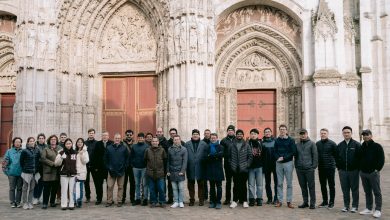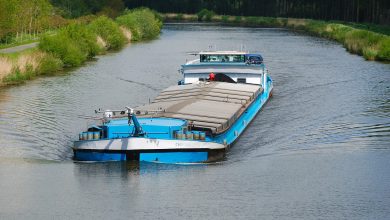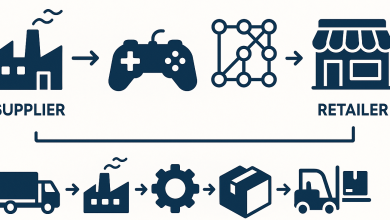Should You Do a PhD? Thoughts From Someone Who Just Finished
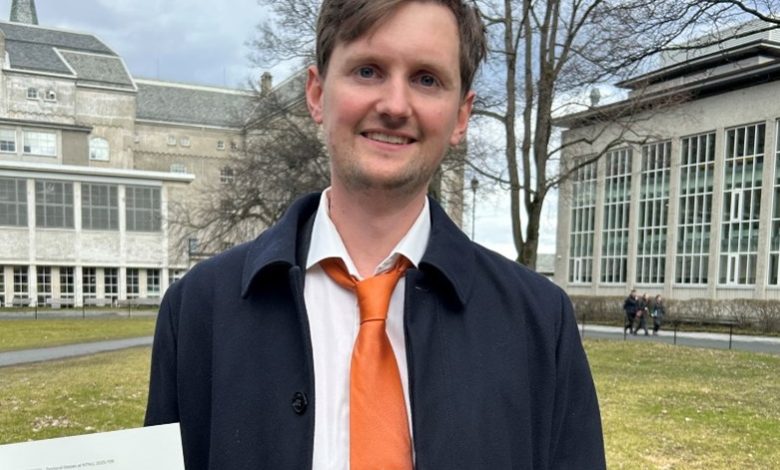
After 3 years of hard work, I finally defended my PhD thesis earlier this year, and I am now a proud holder of a PhD degree. This also marks the end of my time in the AUTOBarge project. I thought I would use my final blog post to reflect on the last three years. I feel a sense of fulfillment and pride, and I am very happy that I embarked on this journey. While there were difficult moments, I wouldn’t trade the experience for anything. If you’re considering this path, I hope these reflections can offer some honest encouragement.
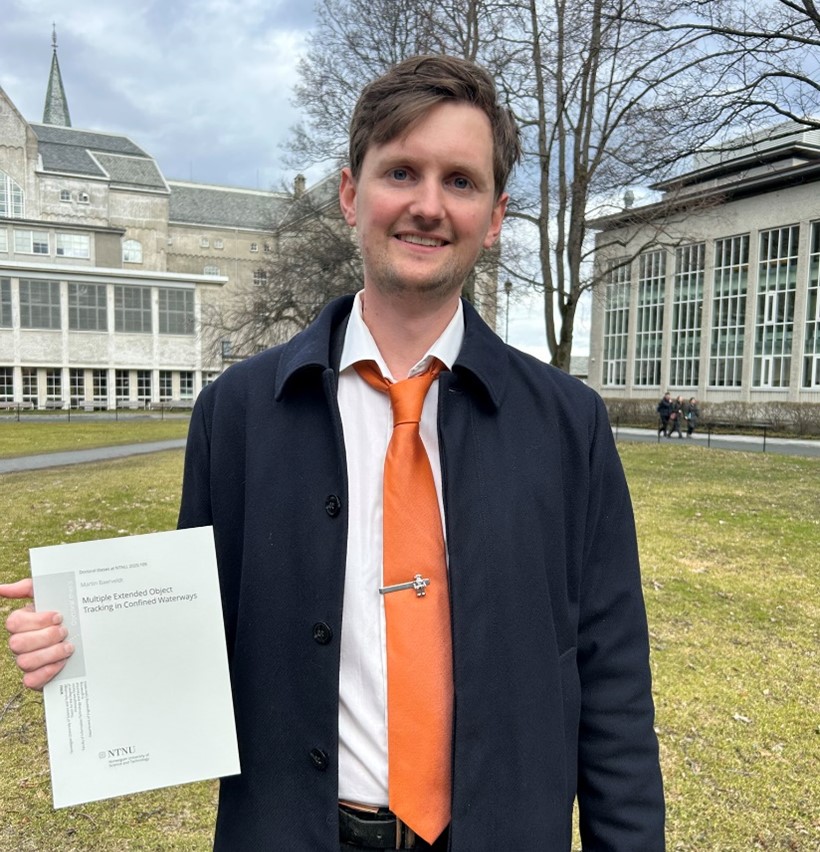
Me with my thesis on the day of my defense
I started my PhD because, from my earlier studies, I knew that my chosen topic, situational awareness for autonomous systems, was something I found very interesting. I wanted to learn more and dive deep into the topic, and I thought a PhD was a good way to do that. The fact that it would be in an international and interdisciplinary project like AUTOBarge was the cherry on top.
Over these three years, I discovered how satisfying it is to see the methods I developed and the ideas I discussed with my supervisor gradually take shape as working code. Watching them perform in simulation and later in the real world on real data was something that kept me motivated throughout the PhD. Sometimes the real data would throw a curveball, leading to unexpected results and new challenges to solve. I had the opportunity to have great research infrastructure around me to enable me to work with this real data, meaning that I could focus on my research, and I am very thankful for that.
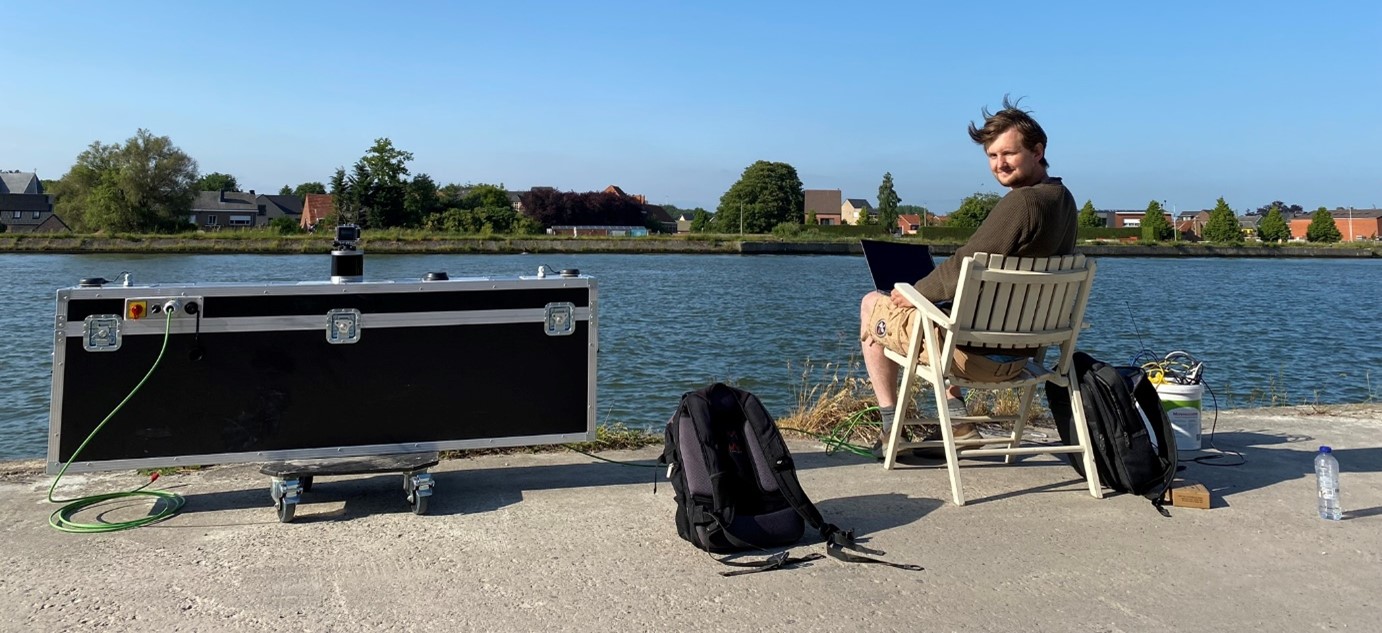
Collecting the data on the shore of an inland waterway
Outside of the research, I have enjoyed the way that a PhD allows you to work in an international environment. This is especially the case with a Marie Curie project with network-wide events such as the ones in AUTOBarge, which provided insights into how the research we were doing could be applied to inland waterways, and the opportunity to connect with industry. This was very motivating and rewarding. It gave me an insight into the current issues and how my research could be applied in the future, which inspired me and gave me new research ideas. The events were also a lot of fun outside of work with the great group of people on the project. In addition, the opportunity to have secondments at different universities to work with different research groups to expand my network and see different ways of working in different countries provided a very interesting perspective. Then there are the conferences that I have attended to meet leading researchers in the field and present my work to get valuable feedback, which also took me to different places around the world.
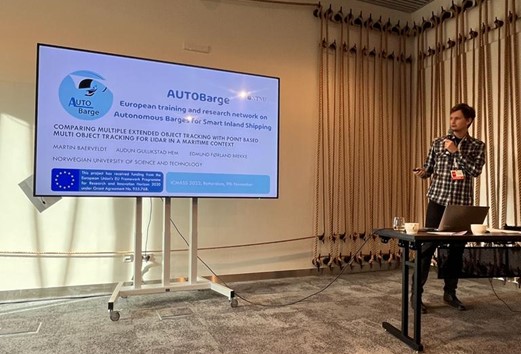
Presenting my research at the ICMASS conference
There were also tough moments when I felt stuck or when things didn’t go the way I had expected. However, I have learned that this is a natural part of research since it means trying to do something or discovering something that hasn’t been done before. Doing research means being comfortable with the uncertainty that comes with that and learning how to manage it. A large part of that is setting (and often resetting) achievable goals. It isn’t easy, but it becomes very rewarding when you finally gain a new insight or see a new method working after having struggled with it.
In conclusion, for me, the answer to the question in the title is a resounding yes. I have learned what it means to be a researcher, made new friends, worked with inspiring people, and gained new international perspectives. I also discovered that I enjoy working at the intersection of ideas and implementation, which is why I will continue to do research as a postdoctoral researcher. A PhD is not easy. But if you are naturally curious, enjoy discovering new things, and like setting your own goals, it can be a very rewarding experience.

